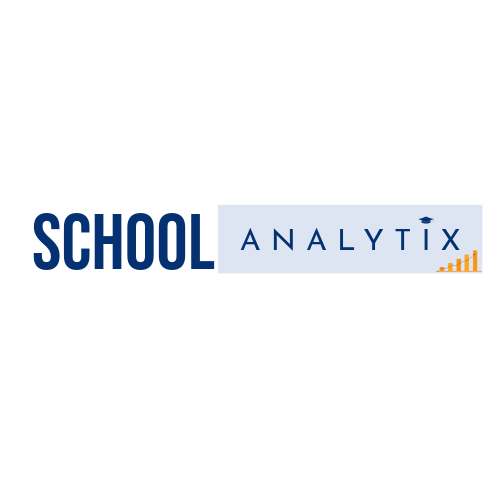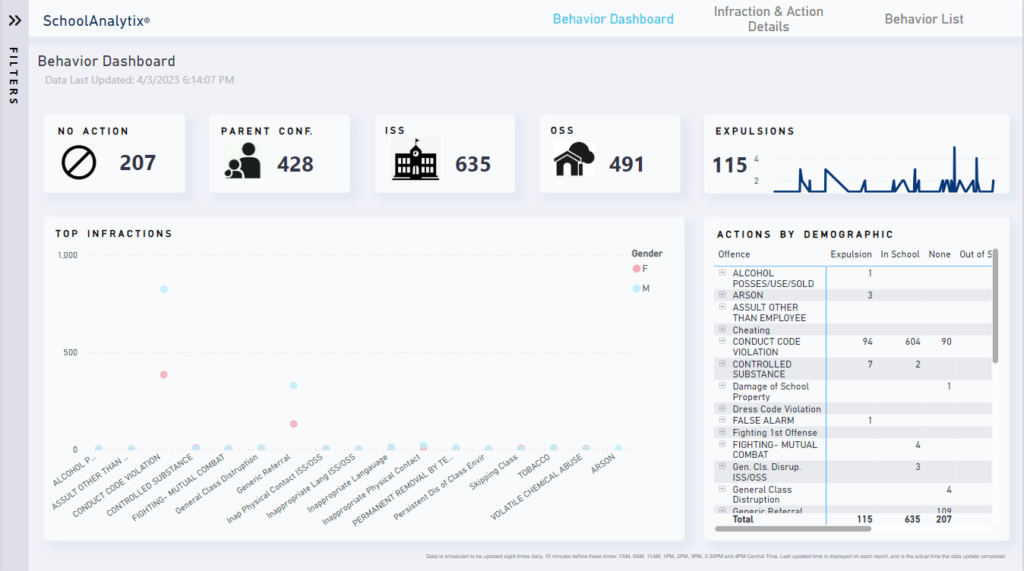In today’s dynamic educational landscape, fostering student engagement and effective classroom management are essential components of promoting positive learning outcomes. Traditional approaches to monitoring and addressing student behavior challenges often fall short in providing educators with timely insights and actionable data to support student success. However, with the advent of technology, student behavior dashboards have emerged as powerful tools for enhancing classroom management practices and improving student engagement. This article explores the role of student behavior dashboards in addressing behavior challenges, promoting student engagement, and empowering educators to create supportive learning environments.
Understanding Student Behavior Dashboards:
Student behavior dashboards are digital platforms that aggregate and visualize data related to student behavior, allowing educators to monitor, analyze, and respond to behavioral trends in real-time. These dashboards leverage data from various sources, including attendance records, disciplinary incidents, academic performance, and social-emotional assessments, to provide a comprehensive view of students’ behavioral patterns and needs. By presenting information in a user-friendly interface, behavior dashboards enable educators to make informed decisions, implement targeted interventions, and foster positive relationships with students.
Promoting Student Engagement:
One of the key benefits of student behavior dashboards is their ability to promote student engagement by providing educators with insights into students’ levels of participation, motivation, and attention in the classroom. By tracking metrics such as attendance, participation in class discussions, and completion of assignments, behavior dashboards allow teachers to identify students who may be disengaged or struggling academically. Armed with this information, educators can implement strategies to re-engage students, such as personalized learning activities, peer collaboration opportunities, or differentiated instruction tailored to students’ interests and learning styles.
Moreover, behavior dashboards facilitate communication and collaboration between educators, enabling them to share insights, strategies, and best practices for promoting student engagement. By fostering a culture of collaboration and professional learning communities, behavior dashboards empower educators to support one another in creating engaging and inclusive learning environments that meet the diverse needs of all students.
Enhancing Classroom Management:
In addition to promoting student engagement, student behavior dashboards play a crucial role in enhancing classroom management practices by enabling educators to proactively address behavior challenges and maintain a positive learning environment. By tracking disciplinary incidents, behavior dashboards allow educators to identify patterns of disruptive behavior, monitor the effectiveness of behavior interventions, and implement strategies to prevent future disruptions.
For example, behavior dashboards can provide educators with insights into the time of day, specific class periods, or environmental factors that may contribute to behavioral issues, allowing them to adjust classroom routines, seating arrangements, or instructional strategies accordingly. By intervening early and addressing behavior challenges in a proactive manner, educators can prevent disruptions, minimize instructional time lost to discipline, and create a supportive classroom climate conducive to learning.
Moreover, behavior dashboards enable educators to collaborate with other stakeholders, such as administrators, counselors, and support staff, in addressing behavior challenges holistically. By sharing data, coordinating interventions, and aligning resources, educators can create a unified approach to classroom management that supports students’ social-emotional development and academic success.
Empowering Educators with Data-Driven Insights:
Perhaps the most significant advantage of student behavior dashboards is their ability to empower educators with data-driven insights that inform instructional decisions, interventions, and support strategies. By visualizing behavioral data in intuitive dashboards, behavior dashboards enable educators to identify trends, patterns, and correlations that may not be apparent through traditional observation alone.
For example, behavior dashboards can highlight correlations between attendance patterns, academic performance, and disciplinary incidents, allowing educators to identify students who may be at risk of disengagement or academic failure. Armed with this information, educators can develop targeted interventions, such as mentoring programs, counseling services, or academic support initiatives, to address students’ underlying needs and promote their success.
Moreover, behavior dashboards facilitate ongoing monitoring and evaluation of the effectiveness of interventions, enabling educators to adjust strategies based on real-time feedback and outcomes data. By continuously refining and iterating their approaches to behavior management, educators can create a responsive and supportive learning environment that meets the evolving needs of students.
Conclusion:
Student behavior dashboards offer powerful tools for improving student engagement and classroom management by providing educators with timely insights, actionable data, and collaborative platforms to support student success. By promoting student engagement, enhancing classroom management practices, and empowering educators with data-driven insights, behavior dashboards play a crucial role in creating inclusive, supportive learning environments where all students can thrive. As technology continues to evolve, behavior dashboards will undoubtedly remain essential tools for educators seeking to promote positive behavior, foster engagement, and maximize learning opportunities for every student.
Leveraging SchoolAnalytix for Expert Guidance
While PowerBI offers powerful analytics capabilities, maximizing its potential for student retention requires expertise in data visualization, predictive modeling, and educational analytics. This is where SchoolAnalytix comes into play. As a leading provider of data analytics solutions for educational institutions, SchoolAnalytix offers a wealth of expertise and resources to support institutions in their quest to optimize student retention.
By partnering with SchoolAnalytix institutions gain access to a team of experienced data scientists, educators, and analysts who specialize in leveraging PowerBI for educational purposes. From dashboard design and customization to predictive modeling and intervention strategies,
SchoolAnalytix provides end-to-end support tailored to the unique needs and goals of each institution.

